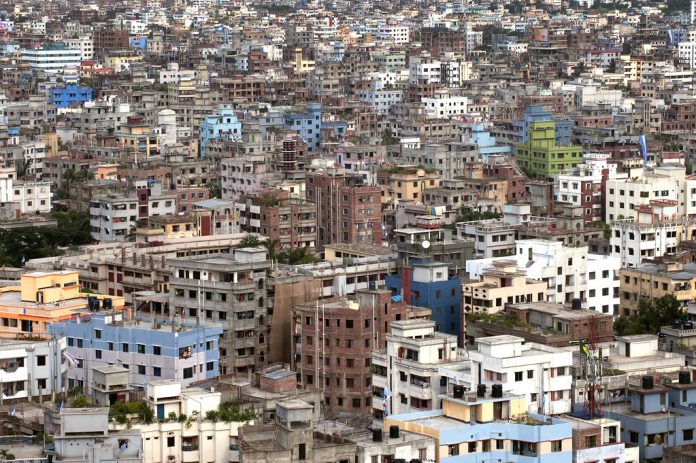
Preeyanti Sen ‘26 experienced difficulty reaching her family and friends from Bangladesh after a near-total internet shutdown back home.
“I finally managed to reach my family and friends after a lot of effort,” Sen said. “Unfortunately, staying in touch will be challenging until we can connect online again.”
A Bird's Eye View on Anti-Quota Protests
Bangladeshi DePauw students struggled to contact their loved ones after increasing student protests in their home country. At least 32 people have died with several people injured after two weeks of clashes between student activists and police authorities.
The opposition started on July 1 after the High Court implemented a 30 percent quota to reserve civil service jobs for relatives of liberation movement fighters. These involve veterans who fought for the country’s independence from Pakistan in 1971.
However, employment opportunities are limited for minority groups and people with disabilities after enforced restrictions for more than half of government jobs. Student protestors are advocating for the abolishment of the job quota and its replacement with a more fair merit-based system.
Witnessing the violence from afar
Bangladeshi-American alumna Zaheen Rashed ‘24 could not contact her relatives and friends after primary mobile services and internet connection was shut down.
“I can only pray for the safety and security of my beloved cousins, aunts, uncles, grandma, and family friends in Bangladesh,” Rashed said.
She felt a mixture of pride and fear watching the Bangladeshi students and youth advocating for their rights.
“Seeing the government brutally attack and kill the students who attend the same high school my own parents went to made me feel hopeless,” she said.
Meanwhile, Sen’s friends attend local universities impacted by the anti-quota protests. She expressed concerns about potential dangers they could face with increasing violence among activist groups.
“It's deeply troubling that everyone is facing such harsh consequences for exercising that right (for peaceful protest),” Sen said.
Other Bangladeshi students from DePauw University continued sharing news stories on their Instagram accounts, raising awareness about ensuing violence from their home country.
Impact on Student Protestors
Violence has ensued across several cities, with police using tear gas and rubber bullets to regulate clashes between student groups. Activists used bricks and sticks to attack opposing groups.
The opposition movement, recently referred to as the Students Against Discrimination movement, involved thousands of students from Dhaka University in the country’s capital and Chittagong University.
Farhan Faiyaaz, an 11th grader from Dhaka Residential Model College, was pronounced dead after a protest against police authorities.
Protestors set fire to the country’s state broadcasting station following an appearance from Prime Minister Sheikh Hasina to deescalate nationwide clashes.
On Tuesday, the government imposed a shutdown of all educational institutions following the violent uprising from the left-wing Awami League.
Meanwhile, students have threatened to implement a “complete shutdown” of the country, following a student-led blockade at Shahbagh Square, a popular area in the capital city.
Paramilitary forces of the Border Guards Bangladesh have been stationed in five cities across the country. Activists vowed to proceed with protests until their demands are met.
